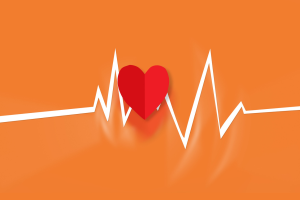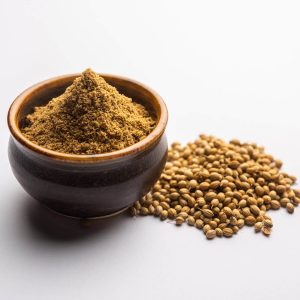7+ Simple Tips to Manage Digestive Problems

Digestion is unquestionably the most crucial action responsible for providing us with energy essential for performing day-to-day tasks. It starts from the mouth, making its way to the small and large intestine through the stomach, breaking down food as it passes through the system. However, many complex digestive problems can arise during this even more complicated process.
There are numerous instances where one can have severe heartburn or an upset stomach. These are some of the most common signs of an unhealthy digestive system. The reasons behind these digestive problems can be improper chewing, stress, medications, etc. Luckily, almost everything has a cure now.
Despite sounding like a serious problem that may be incurable, curtailing digestive issues by taking steps in the right direction is quite doable. To walk you through these steps, listed below are some helpful tips that will save you from possible public embarrassment and prevent digestive problems.
Treat acid reflux/GERD
The most common symptoms of indigestion are acid reflux and, as a result, heartburn. Because of the looseness of the lower esophageal valve, the acid rises towards the heart. As a result, the area surrounding one’s heart starts to burn. If it worsens, it may become chronic and develop into gastroesophageal reflux disease. Early prevention can save you a great deal of torment. Avoiding acid reflux altogether may take time, which is why there’s an alternative to getting rid of the agonizing burn and pain.
With the help of acid reflux tablets, refluxes can be prevented instantly and kept under control. Ideally, you should ingest these tablets at least an hour before consuming a heavy meal. However, do consult with your doctor before indulging in self-medication.
Follow a balanced and healthy diet plan
The best way to combat digestive problems, in the long run, is by eating healthy and in portions. Following a well-devised diet plan, preferably by a doctor or nutritionist, can help your insides perform at their maximum capacity without any hindrances. Having a diet rich in fiber drastically decreases constipation and helps control diarrhea. One of the best diet plans to follow is the Mediterranean diet, consisting of fruits, vegetables, nuts, legumes, whole grains, nuts, and olive oil. All of these, together, provide the much-needed fiber to the bacteria inside the human body. Low in unhealthy sugars, this diet can prove to be highly beneficial for people with digestive problems.
Consuming processed foods and high amounts of salt are known to harm the human body in one, too many ways. The risks include high blood pressure, obesity, and heart-related diseases. Avoiding such insalubrious food substances can help keep the human body in immaculate condition and help counter digestive problems a whole lot better.
Lastly, eating slowly and eating in adequate proportions is crucial. Churning until every food particle is in its tiniest form is necessary.
Chew your food properly
Chewing your food properly is an essential aspect of healthy digestion. When you chew your food, you break it down into smaller pieces, which makes it easier for your digestive system to process. This helps your body extract nutrients from the food and eliminate waste products efficiently.
When you chew your food, your saliva mixes with it, and this starts the process of digestion. Saliva contains digestive enzymes that break down carbohydrates, and the process of chewing helps to mix the food with saliva, so the enzymes can start working. Chewing also sends a signal to your brain that you are eating, which helps to prepare your digestive system for the food that is coming.
If you don’t chew your food properly, you may experience digestive problems such as bloating, gas, and indigestion. This is because large food particles can be difficult for your stomach and intestines to digest, leading to fermentation and gas production.
To chew your food properly, take small bites and chew slowly. Aim to chew each mouthful of food at least 20-30 times before swallowing. This can help ensure that your food is broken down into small enough pieces for your digestive system to process efficiently.
Avoid smoking and excessive alcohol consumption
Smoking and excessive alcohol consumption can have detrimental effects on your digestive system, leading to various digestive problems.
When you smoke, you inhale chemicals that can irritate the lining of your digestive system, leading to inflammation and damage to the tissues. This can cause acid reflux, heartburn, and stomach ulcers, which can be painful and interfere with your ability to digest food properly. Smoking can also decrease the amount of saliva in your mouth, which can lead to dry mouth and contribute to tooth decay.
Excessive alcohol consumption can also damage your digestive system. Alcohol is a diuretic, which means it can cause dehydration and lead to constipation. It can also irritate the lining of your stomach and intestines, leading to inflammation and damage. Over time, excessive alcohol consumption can lead to liver damage and increase the risk of developing liver disease.
Both smoking and excessive alcohol consumption can also disrupt the balance of bacteria in your gut, which can affect digestion and contribute to digestive problems such as diarrhea and bloating.
To promote healthy digestion, it is important to avoid smoking and excessive alcohol consumption. If you do choose to drink alcohol, do so in moderation, and aim to drink plenty of water to stay hydrated.
Stay hydrated with the correct fluids
Constipation and urinatory problems are well-known symptoms of indigestion. By keeping yourself hydrated with water and fresh juices, you can achieve a feeling of rejuvenation. Avoiding caffeine, alcohol, sodas, and other harmful liquids is an absolute must, solely because of how baneful they can be.
Dehydration can lead to stark digestion. Moreover, a high intake of water and sports drinks with electrolytes helps greatly with managing diarrhea as well.
Know what triggers indigestion
Trigger points vary from one person to the other, and that is why you must find out what triggers you instantly. Knowing what foods, liquids, and habits adversely affect your insides is the best way to identifying what triggers indigestion and reflux in your body. To counter this, one may follow what is known as an elimination diet. In this type of diet, you leave out the food and beverages that cause harm to your body in one way or the other. By doing so, you can go easy on your body and help it get the best nutrients possible.
However, victuals and beverages aren’t the only triggering factors. Medications and day-to-day habits can have unfavorable effects as well. It’s best to jot down which medicines promote digestive problems and which ones help counter them. Alongside medications, doing something that makes you uncomfortable can also set off chemical imbalances. For example, fear of height and traveling by air or menstrual cramps can instantly actuate digestion-related problems. Noticing triggers in your daily routine can help you identify what is causing them, which will lead to you abstaining from indulging in them.
Invest in natural probiotics
Probiotics are beneficial microorganisms, such as bacteria and yeasts, that can improve the health of your digestive system.
They can help to balance the natural bacteria in your gut, which can be disrupted by factors such as antibiotics, stress, and poor diet. By promoting the growth of beneficial bacteria, probiotics can help to improve digestion and prevent digestive problems.
While probiotics can be found in fermented foods such as yogurt, kefir, sauerkraut, and kimchi, some people may find it difficult to consume these foods regularly. In such cases, investing in natural probiotic supplements can be an excellent way to ensure that you are getting enough of these beneficial microorganisms.
Natural probiotic supplements are typically made from strains of beneficial bacteria that have been isolated and concentrated for use in supplement form. They come in a variety of forms, including capsules, powders, and liquids, and are widely available at health food stores and online.
When choosing a natural probiotic supplement, it is important to look for a high-quality product that contains strains of bacteria that are known to be beneficial for digestive health. Some commonly recommended strains include Lactobacillus acidophilus, Bifidobacterium bifidum, and Lactobacillus rhamnosus.
It is also important to follow the recommended dosage instructions and to store your probiotic supplement in a cool, dry place to maintain the viability of the beneficial bacteria.
Seek support from family and friends & manage stress
Stress can be a substantial contributing factor to your indigestion. Even though not all forms of stress are avoidable, you can curtail quite a few. Reoccurring symptoms can cause stress, and to avoid them, you may resort to exercising or yoga.
Initially, digestive problems may seem to be embarrassing, but over time, they start to grow on you in a way. Until and unless you confront your loved ones, you will not be able to help them understand what you’re going through. By getting them involved, you will not only help them understand your situation, but you will also help them help you. Communicate with them, tell them how you’re coping with diarrhea, chest pains, etc. To get a better sense of being understood, opt for support groups. Only people going through the same problems know exactly how traumatizing it can be.
Be prepared for the worst but expect the best
Accidents happen where and when you least expect them or want them. As they say, “better safe than sorry.” Carrying wet wipes, medication, and disposables are just some of the steps you can take to be well-equipped and well-prepared for when your insides flare-up. Have a set of essentials stored in your home, workplace, and trunk of your car. You never know when they might come in handy.
Conclusion
Of all the health-related problems in the world, digestive ones are equally important and require undevoured attention. By taking the appropriate steps and going in the right direction, people with digestive problems can overcome their recurring symptoms. The tips mentioned above can help you hope for a more enjoyable and healthier future.






